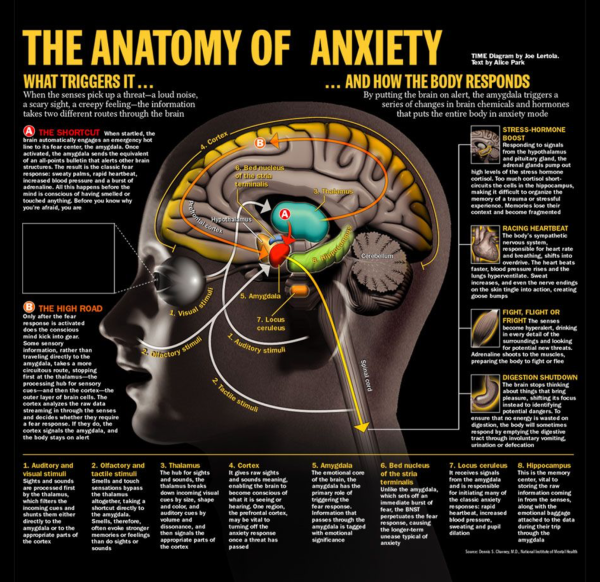Panic attacks are sudden, intense episodes of fear and distress that can occur due to various factors. They are often linked to an excessive fight-or-flight response triggered by the brain's misinterpretation of perceived threats.
Common reasons for panic attacks include:
Stress and Anxiety: High stress and anxiety levels can lead to panic attacks. Stressors like work pressure or life changes can overwhelm the body's stress response systems.
Genetics: Some individuals may be genetically predisposed to panic attacks, with a family history of anxiety disorders increasing the likelihood.
Trauma: Past traumatic experiences, such as accidents or abuse, can contribute to developing panic attacks, as the brain may associate specific triggers with danger.
Neurochemical Imbalance: Fluctuations in neurotransmitters like serotonin and norepinephrine can affect mood regulation and potentially lead to panic attacks.
Medical Conditions: Certain medical conditions, such as hyperthyroidism or heart problems, can mimic panic attack symptoms, causing confusion and anxiety.
Substance Abuse: The use of substances like caffeine, alcohol, or illicit drugs can trigger or exacerbate panic attacks.
Phobias: Individuals with specific phobias may experience panic attacks when confronted with their feared objects or situations.
It's important to note that panic attacks can be managed through therapy, medication, and lifestyle changes, and seeking professional help is crucial for those who experience them regularly.

